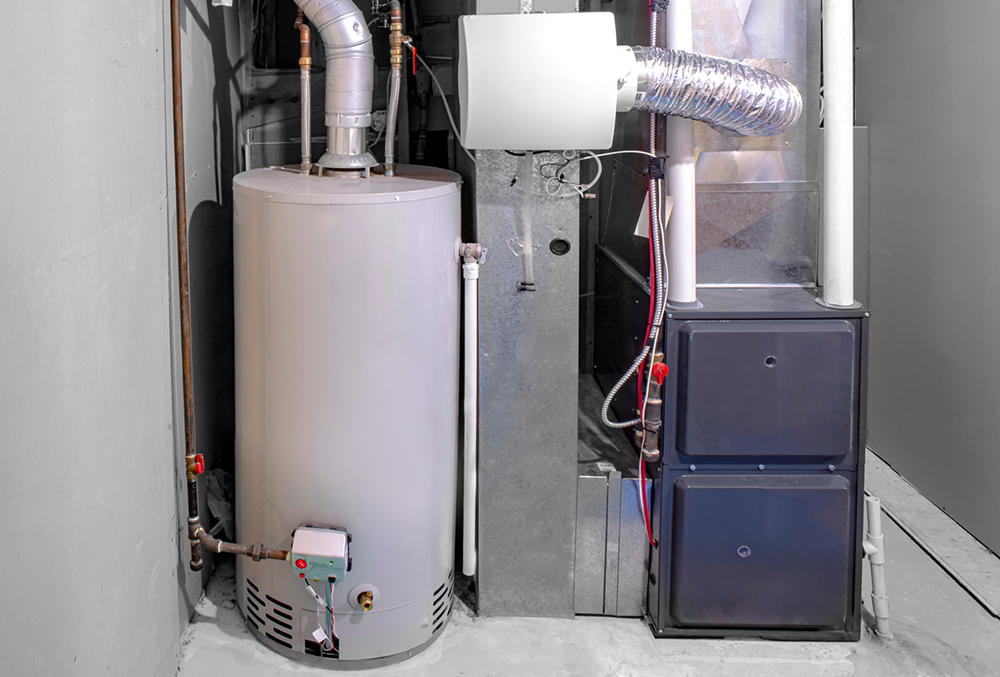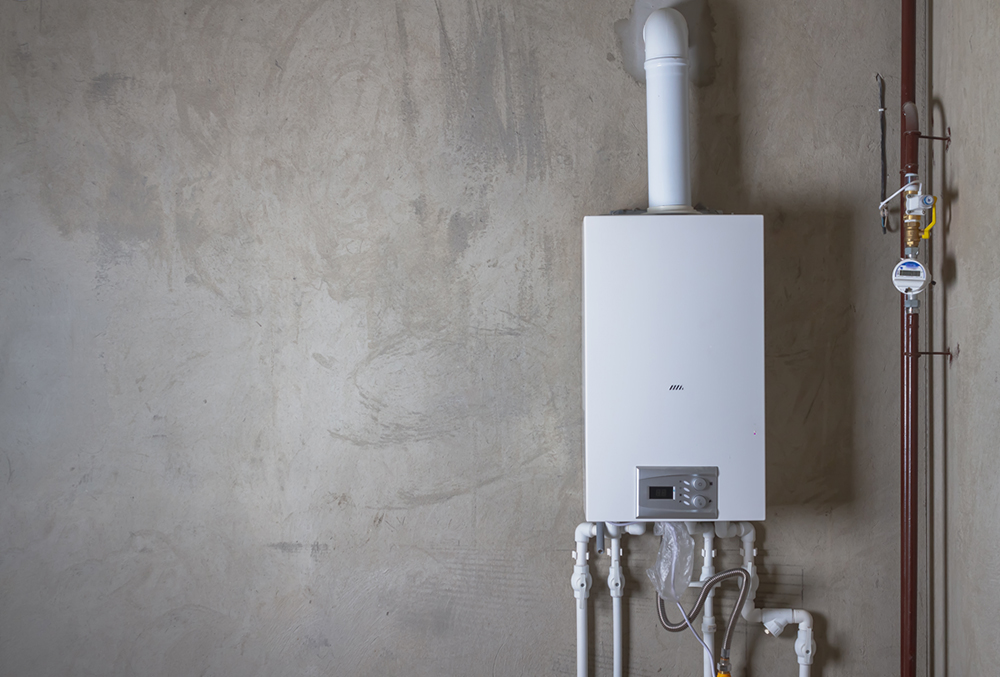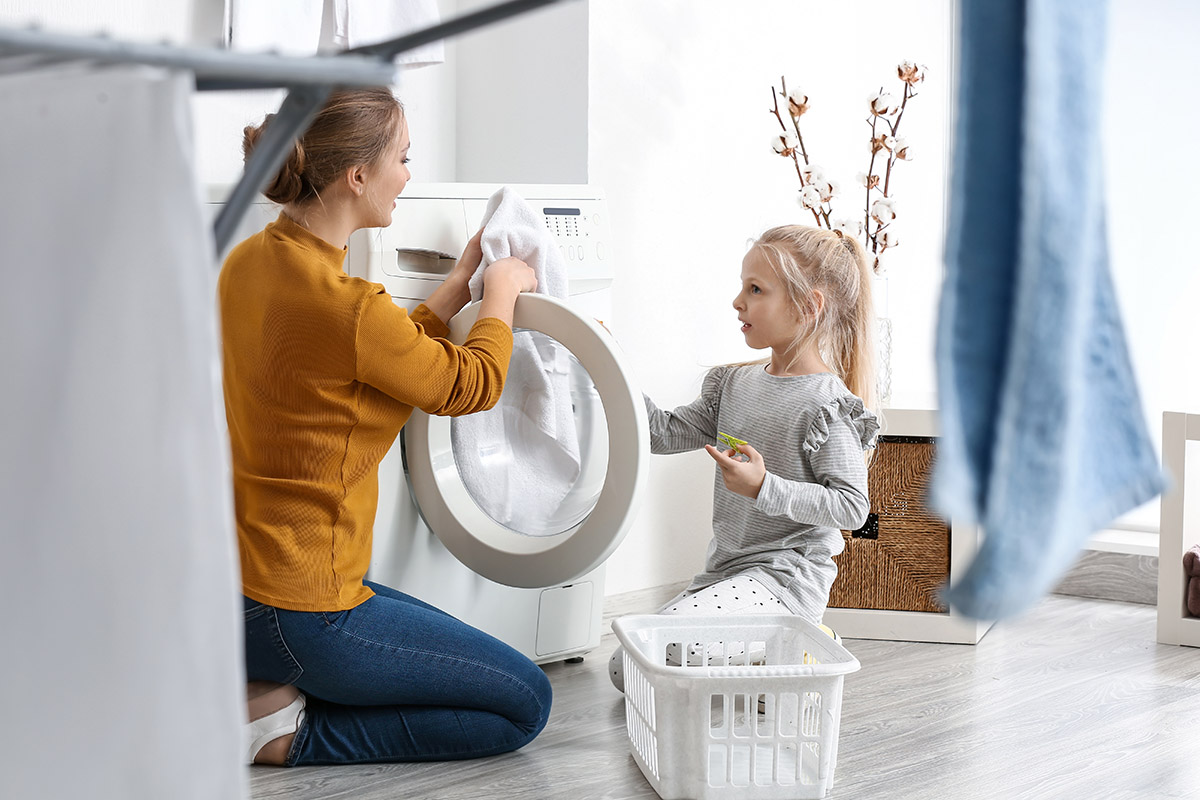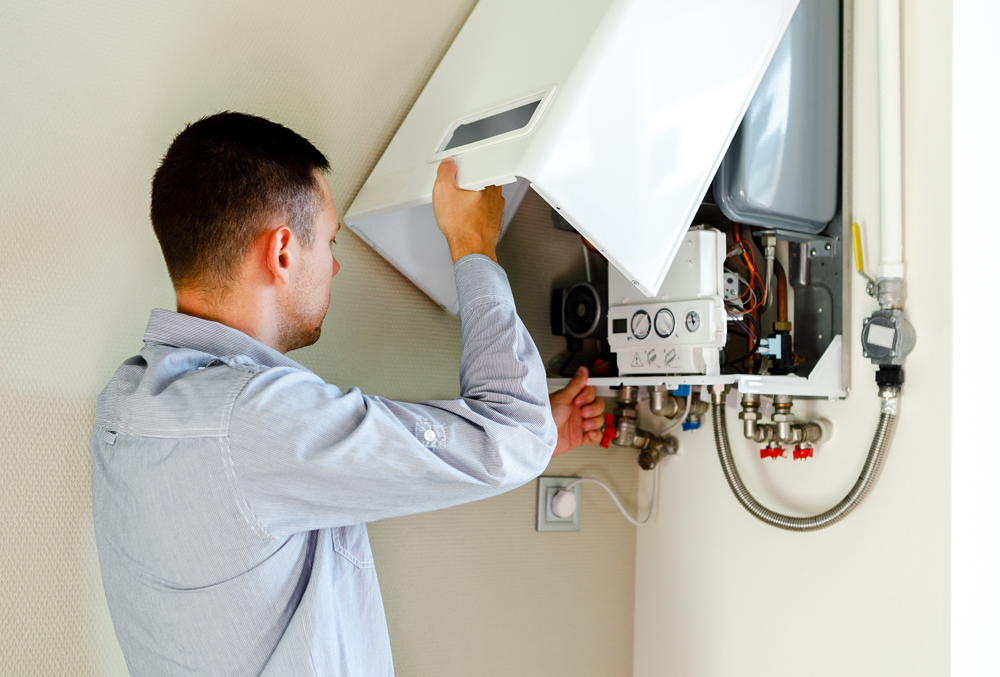Tank vs. Tankless Water Heaters: Which One Is Right for Your Home?
Having hot water when you need it is a necessity in the home. When it comes time to replace or upgrade your hot water heater, the decision impacts everyone at home, including your appliances and utility bills. For many homeowners, the choice will be between two main types of water heaters: tank and tankless.
Tankless heaters are increasingly popular due to their potential for energy savings and unlimited on-demand flow of hot water. Conversely, storage tank water heaters offer lower upfront costs and simpler maintenance, but less energy efficiency. Let’s dive deeper into the differences between the two so you can find the right solution for your home.

What Is a Tank Water Heater?
Storage tank water heaters contain an insulated reservoir of heated water on standby for use. They typically hold 30 to 80+ gallons depending on the unit size and capacity.
This type of water heater provides a reliable hot water supply, but can run out of hot water once the tank depletes.
Types of Storage Tank Water Heaters
Tank water heaters can be powered by several fuel types, including electricity, natural gas, oil and sometimes propane. The fuel source determines the water heater’s performance, efficiency, recovery rate, operating cost and environmental impact.
- Electric: The most efficient type of tank water heater, often cheaper and easier to install compared to gas or oil. Has a slow recovery time once depleted. Operational costs depend on electricity rates.
- Gas: Features a faster recovery rate and lower average operating cost than electric. Best-suited for larger households, though gas isn’t the most efficient and can lose heat through venting. Installation tends to be slightly more complex.
- Oil: Oil-fired water heaters are powerful and suitable for large households with high hot water demands. They heat water more rapidly compared to gas or electric, although they cost more to purchase and maintain. Many are being phased out due to environmental concerns.
What Is a Tankless Water Heater?
Like their name suggests, tankless water heaters don’t use a storage tank to hold hot water. Instead, they heat water on demand for unlimited supply, measured in terms of the unit’s flow rate (the amount of hot water it can deliver per minute). This can be a limitation if your house requires a high volume of hot water simultaneously, such as running several water-using appliances at once.
Tankless water heaters also have a longer lifespan and smaller, more space-saving design compared to standard tank heaters.

Types of Tankless Water Heaters
Tankless water heaters are commonly fueled by either electricity or gas. Which you choose can impact the unit’s flow rate, energy efficiency, and installation and operational costs.
- Electric: Very energy efficient and eco-friendly but with a limited, lower flow rate of 2-5 gallons per minute (GPM). Best for smaller homes and point-of-use.
- Gas: Better for homes with a high water demand, gas tankless heaters produce flow rates from 5-10 GPM. They can be cheaper to operate, based on gas versus electricity costs in your area. They are not quite as efficient and less eco-friendly, and require more complex maintenance and installation compared to electric.
Things to Consider When Comparing Tank and Tankless Water Heaters
There are several key differences between tank and tankless water heaters in terms of unit design and efficiency, performance, cost, installation and maintenance requirements. Which type of heater is best for your home depends on your water needs, usage habits and plumbing setup, among other factors. A licensed plumbing professional can help you get the most accurate, best solution for your home.
1. Household Size and Water Usage
You’ve heard it growing up countless times — “don’t use up all the hot water!” Showering, running the dishwasher or doing laundry: all of these uses of hot water deplete the reserves in a traditional tank water heater. Once empty, the unit can take over an hour to refill, depending on the size and fuel type of the tank water heater.
Tankless water heaters, on the other hand, will never “run out” of hot water, though they have limitations to how much they can provide at once.
By the numbers:
- A 10-minute shower uses roughly 25 gallons of water (2.5 gallons of water per minute) with a standard shower head. Low-flow shower heads typically operate at 1.5 GPM or less.
- Washing machines use 15-25 gallons of water on average per load, with high-efficiency washers using closer to 10-15. This translates to 3-5 gallons per minute, respectively. Actual usage can vary greatly based on your washer’s model, cycle settings and water quality.
- Modern dishwashers use approximately 5 gallons of water per load (at 2-3 GPM), with high-efficiency models under 3.5 gallons per load, according to some estimates.

When choosing a water heater, consider your typical water usage and household size with these numbers in mind.
Storage tank heaters: The recommended tank size for a family of five is about 60-80 gallons. For smaller households of 2-3 people, a 40-50 gallon tank should suffice. When shopping, take note of the first hour rating (FHR) for each tank water heater, as certain units — especially larger gas-fueled models — can supply more hot water when starting with a full tank.
Tankless water heaters: Enjoy endless hot water on demand, so long as you stay within the unit’s flow rate capabilities. Low-flow tankless heaters: 2-3 GPM; standard: 3-5 GPM; high flow-rate: 7-10+ GPM (allows for simultaneous running of appliances and multiple bathrooms). Actual flow rates vary according to the model, incoming water temperature, heating power and fuel source.
While standard tankless water heaters won’t always handle the high demand of large homes, you can install multiple tankless water heaters in a parallel setup to increase flow rate (e.g., one upstairs, one downstairs), or install point-of-use heaters to certain fixtures to share demand, like under the sink.
2. Energy Efficiency
Are you looking to save on your monthly utility bills? Tankless water heaters can help, as they typically use 10-30% less electricity than tank models (source). Because tankless heaters only heat the water when needed, this reduces standby heat loss and wasted energy of perpetual heating.
Standard tank water heaters, both gas and electric, tend to heat water less efficiently due to heat loss through the tank’s walls, the continuous heating process and overall unit design. You can opt for a high-efficiency model if you’d like better savings on utility bills.
A closer look at energy efficiency:
Water heater efficiency is measured in terms of the Uniform Energy Factor (UEF), which indicates the amount of energy used to heat water. The higher the number, the more efficient.
Efficiency spans a wide range for different types of water heaters. For example, most standard tank water heaters have a UEF between 0.63 and 0.95, compared to an average UEF of 0.93+ for tankless, according to ENERGY STAR.
3. Upfront Budget
The upfront cost of any water heater, tank or tankless, will depend on the model, brand, fuel source and any installation requirements or new construction.
The average tank heater runs between $300 and $1,500, depending on capacity and the factors listed above. Tankless water heaters can cost from $500 to $3,000+, though due to energy savings in the long run you may find the ongoing benefits outweigh the initial cost.
4. Space Availability
It’s no secret that traditional tank water heaters take up significant space, often in a closet of their own. If you’re in a smaller home or want extra storage space, tankless water heaters offer a much more compact, space-saving design.
5. Installation Costs
Working with professional, licensed plumbers will help you ensure your new water heater is set up and properly tested. Installing a tank heater is relatively straightforward when it comes to water supply and power source connections. Electric tank heaters will require a dedicated circuit, with gas-fueled heaters requiring proper ventilation and gas line installation if not already in place.
Tankless water heater installation tends to be slightly more complicated and expensive due to necessary venting configurations and power supply needs. For example, electric tankless heaters often require dedicated circuits, high-amp wiring and other electrical upgrades; gas models require more specialized venting and larger gas lines to supply adequate fuel.
In both cases, some plumbing-line upgrades may be necessary based on your home and the type of water heater you had previously.

6. Lifespan & Maintenance
Tankless water heaters have an expected average lifespan of 15 to 20 years or more, according to the US Department of Energy, compared to the 10- to 15-year lifespans of tank heaters.
Any appliance’s lifespan will depend on its use and upkeep. Water quality also impacts the longevity of your water heater, as hard water minerals and other contaminants can cause increased wear and tear on water-using parts.
Both tank and tankless water heaters should be serviced regularly. Both also need to be drained or flushed yearly to get rid of minerals, sediment and bacteria that can build up, especially if you have hard water.
- Storage tank water heaters: Regularly flushing the heater helps maintain consistent hot water capacity and efficiency, while limiting corrosion, rust, accumulation of sulfur-producing bacteria (responsible for water’s rotten egg smell) and potential leaks. Internal components like the anode rod will also need replacing over time.
- Tankless water heaters: Maintenance is more complex and includes, in addition to a system flush, descaling, filter cleaning, inspection and replacement of parts like flow sensors and vents.
Consult a licensed plumbing expert if you need hot water heater maintenance or repair.
Which Option Is Best for You?
Choosing the right water heater for your household comes down to your preference, what fits your budget and your home’s daily water use (especially how much at one given time). Tip: If you value the energy efficiency of a tankless heater, check the warranty duration to see if you’re covered until the unit pays for itself.
| Storage Tank | Tankless |
|---|---|
| Low upfront cost | Energy-efficient operation, higher upfront cost |
| Predictable water usage | High-demand water usage |
| Shorter lifespan, simpler maintenance process | Longer lifespan, more complicated maintenance |
| Larger size | Space-saving design |
Choose Kinetico for Your Water Heater and Plumbing Needs
At Kinetico, we’re here for all of your plumbing and water treatment needs, whether you need water heater maintenance, repair or a full system upgrade. We can also help you improve your hot water heater’s lifespan and efficiency with a water system that delivers cleaner, better-tasting water to every tap. Contact us to get a free quote on all plumbing services or call us at (888) 788-3181.
